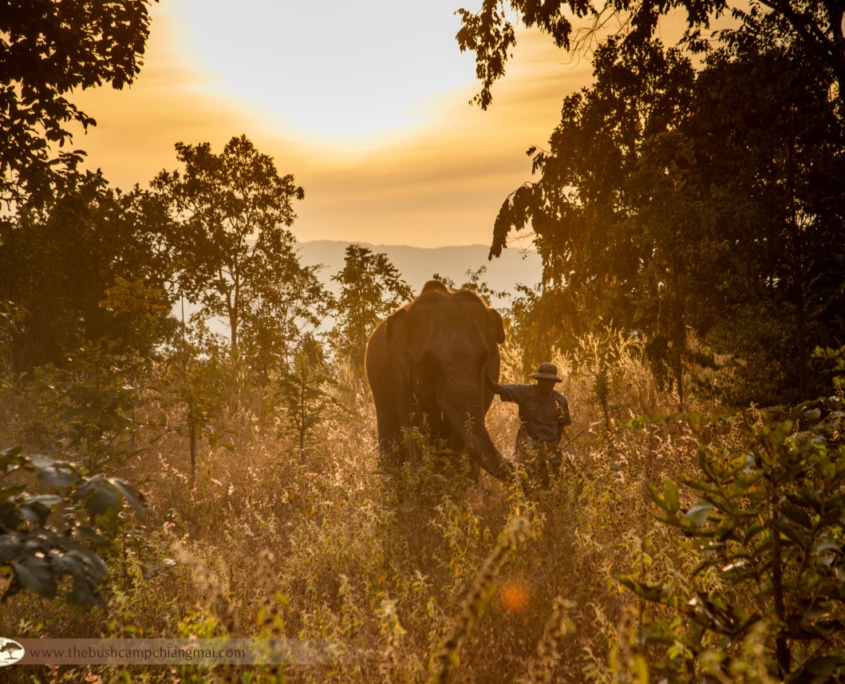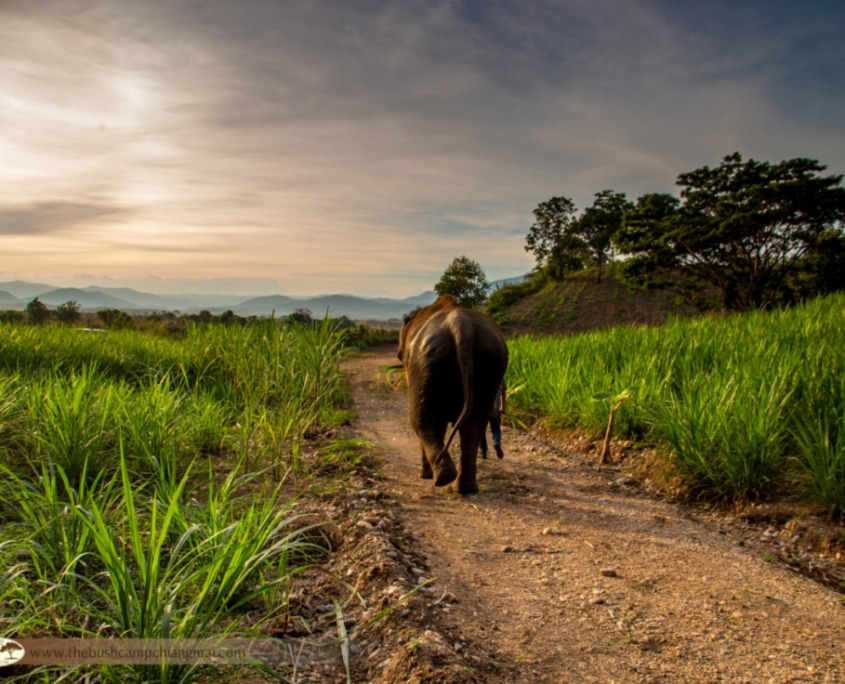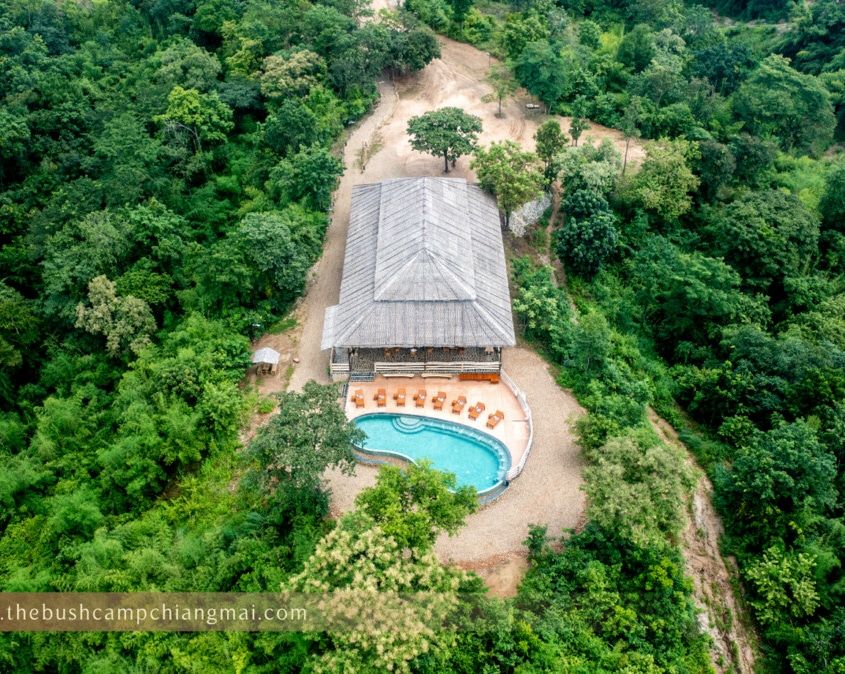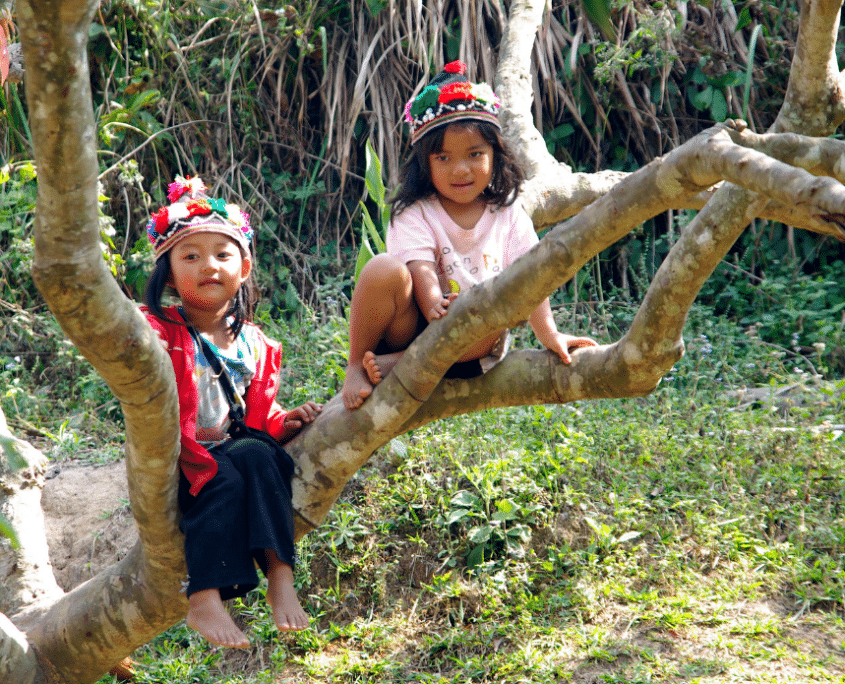Embracing Ethical Wildlife Engagement in Chiang Mai

Chiang Mai, a sanctuary of natural beauty and cultural heritage, stands at the forefront of ethical wildlife engagement. This northern Thai gem is not only a haven for adventurers and nature enthusiasts but also a pioneering city in promoting responsible tourism practices.
Through the lens of ethical wildlife engagement, Chiang Mai offers a blueprint for harmonious interactions between humans and nature. It underscores the importance of conservation, education, and sustainable travel, inviting tourists to experience wildlife in a manner that respects animal welfare and nurtures the environment.
This commitment to ethical practices not only enhances the visitor experience but also ensures the preservation of Thailand’s majestic fauna for generations to come.
The Importance of Ethical Wildlife Engagement

Responsible tourism in Chiang Mai goes beyond mere observation of wildlife; it involves engaging with animals in a way that prioritizes their welfare and natural behaviours. Ethical wildlife engagement is crucial for conservation efforts, ensuring that tourism contributes positively to the preservation of species and habitats.
By adhering to guidelines that respect animal welfare, tourists can help combat exploitative practices and support conservation initiatives. The Bush Camp, nestled in the lush landscapes of Chiang Mai, exemplifies this approach by offering encounters that educate and inspire, fostering a deep appreciation for Thailand’s diverse ecosystems while actively contributing to their protection.
Fostering Respect and Understanding Through Ethical Wildlife Engagement
Chiang Mai’s approach to wildlife tourism sets a benchmark for ethical engagement, emphasizing respect, conservation, and the well-being of animals. This region’s rich biodiversity and the presence of iconic species, such as the Asian elephant, underscore the need for responsible interactions. Ethical wildlife engagement ensures that our curiosity and desire for close encounters do not compromise the natural behaviours or habitats of these magnificent creatures. By prioritizing ethical practices, Chiang Mai’s tourism sector advocates for a balanced relationship between humans and wildlife, where both can thrive.
Conservation Efforts and Ethical Practices: A Symbiotic Relationship
The principles of ethical wildlife engagement are deeply intertwined with conservation efforts. In Chiang Mai, initiatives aimed at protecting natural habitats and endangered species are supported by tourism practices that are mindful of ecological impacts. Responsible tourism not only aids in funding conservation projects but also raises awareness among visitors about the challenges facing wildlife. The Bush Camp, with its commitment to ethical elephant encounters, exemplifies how tourism can play a role in conservation while offering enriching experiences to visitors.
The Role of Tourists in Promoting Ethical Engagement
Tourists have a significant role to play in promoting ethical wildlife engagement. By choosing to support establishments and experiences that adhere to responsible practices, visitors contribute to a culture of respect and care for wildlife. It’s essential for tourists to educate themselves about the characteristics of ethical encounters, such as observing animals in their natural habitats without causing distress or disruption. Chiang Mai offers various opportunities for tourists to engage with wildlife ethically, from guided nature walks to sanctuary visits, each designed to foster a meaningful connection with the natural world.
Guidelines for Ethical Wildlife Encounters

Understanding and respecting the guidelines for ethical wildlife encounters are essential for any responsible tourist. These guidelines help ensure that your interactions with wildlife contribute positively to animal welfare and conservation efforts. In Chiang Mai, where the opportunity to connect with nature is profound, adhering to these principles is crucial.
- Research and Choose Ethically Operated Venues: Before booking any wildlife-related activity, thoroughly research the facility to ensure it operates on ethical principles that prioritize animal welfare.
- Keep a Respectful Distance: Always maintain a respectful distance from animals, allowing them to exhibit natural behaviours without human interference.
- No Direct Interaction Unless Supervised by Professionals: Avoid direct interaction with wild animals unless it’s under the strict supervision of trained professionals who ensure the safety and well-being of both the animals and visitors.
By following these guidelines, visitors can enjoy meaningful wildlife experiences that respect the natural world and contribute to the ongoing efforts to protect and preserve Chiang Mai’s unique biodiversity.
The Bush Camp’s Conservation and Ethical Engagement Initiatives

The Bush Camp Chiang Mai is at the forefront of promoting ethical wildlife engagement through a series of impactful conservation initiatives. Understanding the delicate balance between tourism and wildlife conservation, The Bush Camp has established a set of practices and programs that not only enrich the visitor experience but also ensure the protection and well-being of wildlife.
- Ethical Elephant Encounters: At the core of The Bush Camp’s initiatives is the provision of ethical elephant encounters. These encounters are designed to educate visitors about elephant conservation while ensuring that interactions are respectful and do not harm the animals.
- Supporting Local Conservation Projects: The Bush Camp actively supports local conservation projects, including habitat restoration and anti-poaching efforts. These projects aim to safeguard the region’s biodiversity, ensuring that wildlife thrives in its natural habitat.
- Educational Programs for Visitors: Understanding the importance of education in promoting conservation, The Bush Camp offers educational programs that highlight the significance of ethical wildlife engagement and responsible tourism practices.
Through these initiatives, The Bush Camp exemplifies how tourism can coexist with conservation, providing guests with unforgettable experiences that are both enjoyable and sustainable. Book An Ethical Tour Now >>>
Benefits of Ethical Tourism for Local Communities

Ethical tourism profoundly impacts local communities in Chiang Mai, fostering sustainable development and cultural preservation. By engaging responsibly with wildlife and supporting ethical practices, tourists contribute to the local economy in a way that encourages the protection of natural resources and cultural heritage.
This responsible approach ensures that tourism revenues benefit the community, supporting education, conservation projects, and the overall well-being of the residents. Ethical tourism thus becomes a catalyst for positive change, promoting environmental stewardship and cultural respect among both locals and visitors.
How to Choose Ethical Wildlife Experiences:

Choosing ethical wildlife experiences requires diligence and a commitment to supporting practices that prioritize animal welfare and environmental conservation. Tourists should look for activities and tours that provide transparent information about their operations, ensure minimal impact on wildlife, and contribute to conservation efforts.
Seeking experiences that offer educational insights into local wildlife and ecosystems, and support community-based initiatives, can also enhance the sustainability of tourism. Opting for certified and well-reviewed programs known for their ethical standards ensures that your visit contributes positively to the local environment and its inhabitants.
Supporting ethical wildlife engagement in Chiang Mai has significant benefits, impacting both conservation efforts and local communities positively. Choosing responsible tourism practices helps ensure that the natural habitat and the welfare of animals are preserved. It also contributes to local economies, supporting sustainable development and education about conservation. Engaging ethically with wildlife encourages respectful interactions, fostering a greater appreciation for nature and its inhabitants.
FAQs on Ethical Wildlife Engagement in Chiang Mai
- What makes an animal encounter ethical?
Look for encounters that prioritize animal welfare, involve minimal human-animal interaction, and focus on education. - How can tourists ensure their visit supports wildlife conservation?
Choose experiences and accommodations that are transparent about their conservation efforts and contributions to local communities. - Are elephant sanctuaries in Chiang Mai ethical?
Not all sanctuaries are created equal. Research and select those with a strong emphasis on rehabilitation, conservation, and ethical treatment. - Can I interact with elephants in Chiang Mai without riding them?
Yes, many ethical sanctuaries offer experiences focused on observation, feeding, and sometimes bathing elephants, without riding.
Discover Ethical Wildlife Encounters with The Bush Camp

Embrace the spirit of responsible tourism and ethical wildlife engagement by planning your next adventure with The Bush Camp in Chiang Mai. Experience firsthand the beauty of Thailand’s wildlife, learn about conservation efforts and contribute to a sustainable future. Join us at The Bush Camp for an unforgettable journey into the heart of nature, where every encounter is respectful, educational, and truly impactful.
For more details on our ethical tourism practices and to book your visit, explore The Bush Camp Chiang Mai.




